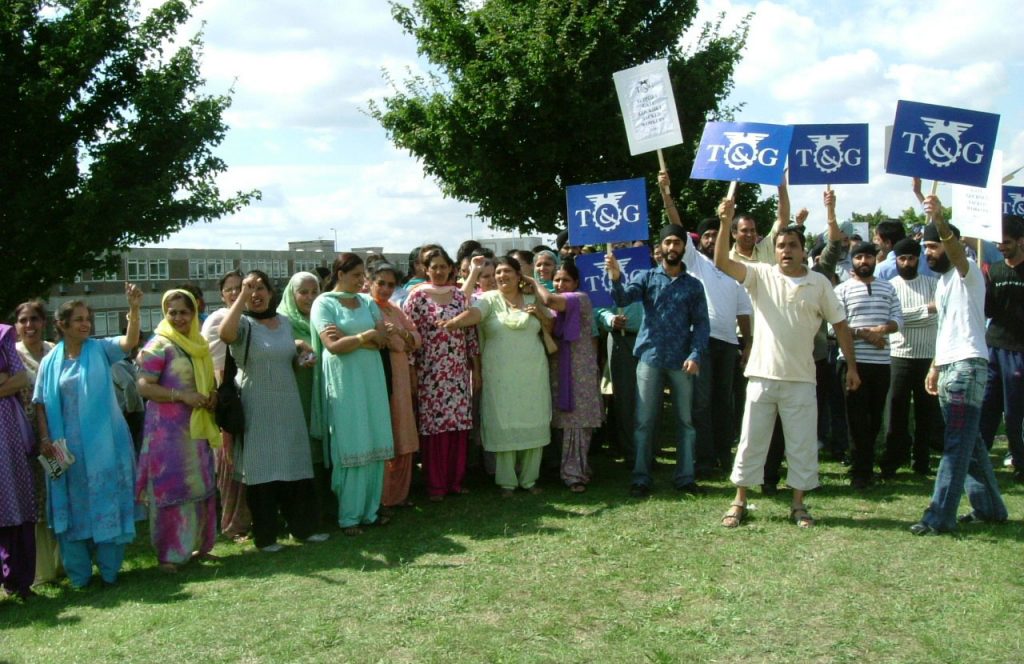Prime Minister Blair yesterday outlined new draconian measures to deport or jail people judged to be ‘glorifying terrorism’.
He said ‘intensive meetings across government’ had taken place over the past fortnight ‘to set a comprehensive framework for action’ in dealing with the UK terrorist threat.
He added ‘administrative measures, not requiring legislation’ will be brought in ‘with immediate effect’.
Blair said the measures included ‘new grounds for deportation and exclusion’.
These will ‘include fostering hatred, advocating violence to further a person’s beliefs or justifying or validating such violence.’
He said: ‘These issues will, of course, be tested in the courts. Up to now, the concern has been that orders for deportation will be struck down as contrary to Article 3 of the European Court of Human Rights (ECHR), as interpreted by the European Court in the Chahal case in 1996; and indeed have had such cases struck down.
‘However, the circumstances of our national security have now self-evidently changed and we believe we can get the necessary assurances from the countries to which we will return the deportees, against their being subject to torture or ill-treatment contrary to Article 3.’
He declared: ‘Should legal obstacles arise, we will legislate further, including, if necessary amending the Human Rights Act, in respect of the interpretation of the ECHR.’
He added: ‘Once the new grounds take effect, there will be a list drawn up of specific extremist websites, bookshops, centres, networks and particular organisations of concern.
‘Active engagement with any of these will be a trigger for the Home Secretary to consider the deportation of any foreign national.’
Blair said new anti-terrorism legislation in the Autumn ‘will include an offence of condoning or glorifying terrorism.’
In what was taken as a reference to a speech by anti-war MP George Galloway, Blair continued: ‘The sort of remarks made in recent days should be covered by such laws.
‘But this will also be applied to justifying or glorifying terrorism anywhere, not just in the UK.’
He said: ‘Anyone who has participated in terrorism or has anything to do with it anywhere will automatically be refused asylum.’
He said the government will consider extending powers to strip citizenship from those individuals with British or dual nationality, who act in a way that is contrary to the interests of this country, ‘to naturalised citizens engaged in extremism’.
He added: ‘Cases such as Rashid Ramda wanted for the Paris metro bombing ten years ago and who is still in the UK whilst France seeks extradition, are completely unacceptable.
‘We will begin consultation, on setting a maximum time limit for all future extradition cases involving terrorism.’
He added that the government was looking at how to go about ‘meeting the police and security service request that detention pre-charge of terrorist suspects be significantly extended’.
He said: ‘For those who are British nationals and who cannot be deported, we will extend the use of control orders. Any breach can mean imprisonment.’
He said the government is considering ‘a new power to order closure of a place of worship which is used as a centre for fomenting extremism and will consult with Muslim leaders in respect of those clerics who are not British citizens, to draw up a list of those not suitable to preach who will be excluded from Britain’.
Border security will be tightened ‘with a series of countries specifically designated for biometric visas over the next year’.
Blair said that, meanwhile, the Home Office and Foreign Office ‘are compiling an international database of those individuals whose activities or views pose a threat to Britain’s security.
‘Anyone on the database will be excluded from entry with any appeal only taking place outside the country.’
‘Let me also make it clear. If legislation can be made ready in time and the right consensus is achieved, we are ready to recall Parliament in September, at least to begin the debate over the measures.’
During questions, a journalist asked: ‘George Galloway launched an extremely personal attack on you this morning, suggesting that you had more blood on your hands than the London bombers and comparing you to a terrorist.
‘What would you say to him and people, from whatever communities they come from, who feel like him.
‘And would some of the comments he’s made, particularly referring to suicide bombers as martyrs, in theory be covered under your plans to exclude or deport people whether they’re British nationals or otherwise?’
Blair replied: ‘You can’t deport people who are British nationals.’
‘You can put them in prison’, the journalist interjected.
• Second news story
RUMSFELD WARNS SYRIA OVER INSURGENCY
‘THE United States and the world obviously has to create a better clarity in the minds of the leaders of Syria that what they’re doing is harmful ultimately to themselves,’ US Defence Secretary Donald Rumsfeld said yesterday.
He added: ‘And Iraq doesn’t like what Syria is doing.
‘And Iraq is going to be in that neighbourhood for a very long time. And it’s a bigger country, a richer country, and it will be a more powerful country,’ he said, threatening Syria.
Rumsfeld continued that Syria has refused to return Iraqi funds to Iraq and has housed former Ba’athist leaders while a steady stream of foreign fighters have crossed its borders into Iraq.
However, he also revealed a contradiction that the US commanders in Iraq are facing.
The more US troops they have in the country, ‘the more visible they are and the more they seem to be an occupying force.
‘Therefore, the more it feeds into the insurgents’ argument that the United States and the coalition nations are in fact there as an occupying power, which we are not,’ he said.
With too few troops, on the other hand, the lack of security will prevent political changes that are crucial to convincing Iraqis to support the new Iraqi state and turn away from the insurgency, he said.
